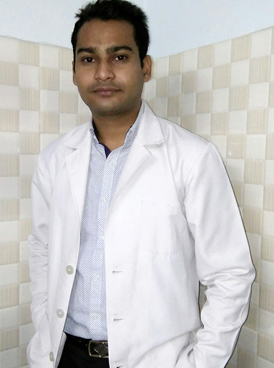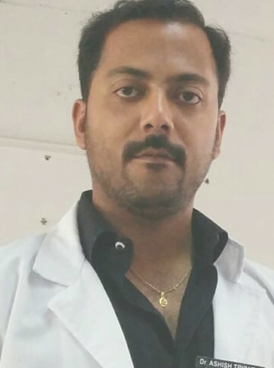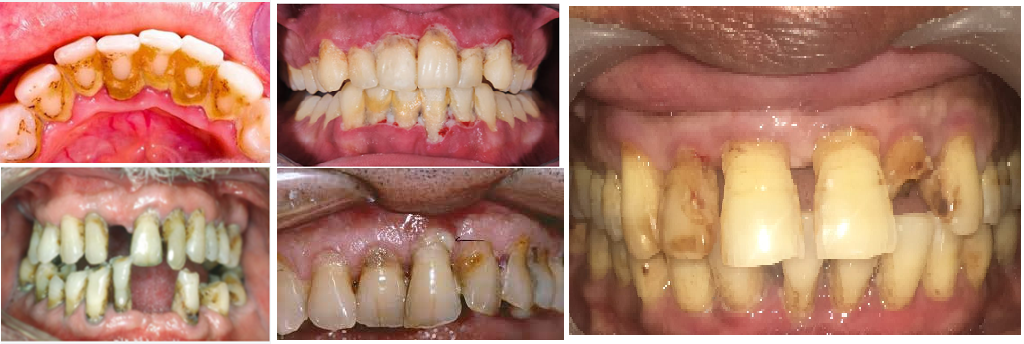
Pyorrhea, also known as periodontitis, is a serious gum disease that affects millions of people around the world. It can lead to tooth loss and other serious health problems if left untreated.
Causes of Pyorrhea
Pyorrhea is caused by a build- up of plaque and bacteria on the teeth and gums. Plaque is a sticky film that forms on the teeth when bacteria in the mouth combine with food particles and saliva. If plaque is not removed through regular brushing and flossing, it can harden into tartar, which can irritate and inflame the gums. Over time, the inflammation can cause the gums to pull away from the teeth, creating pockets that can become infected. The bacteria in these pockets can spread to the bone and tissue that support the teeth, causing them to become loose and eventually fall out.
Risk Factors for Pyorrhea
There are several risk factors that can increase your risk of developing pyorrhea. These include:
• Poor oral hygiene: If you don't brush and floss your teeth regularly, plaque can build up on your teeth and gums, increasing your risk of developing pyorrhea.
• Smoking: Smoking can weaken the immune system and make it harder for the body to fight off infections like pyorrhea.
• Diabetes: People with diabetes are at higher risk of developing gum disease, including pyorrhea.
• Hormonal changes: Hormonal changes during puberty, pregnancy, and menopause can make the gums more sensitive and more prone to infection.
• Genetics: Some people may be more susceptible to pyorrhea due to their genetics.
Symptoms of Pyorrhea
• The early signs of pyorrhea include red, swollen, and bleeding gums, as well as bad breath and a bad taste in the mouth. As the disease progresses, it can cause the gums to pull away from the teeth, creating pockets that can become infected.
Other symptoms of pyorrhea may include:
• Loose teeth
• Receding gums
• Painful chewing
• Sensitive teeth
• Changes in the way your teeth fit together when you bite
• Treatment for Pyorrhea
Treatment of Pyorrhea
If you have pyorrhea, it's important to get treatment as soon as possible to prevent further damage to your teeth and gums. Treatment for pyorrhea typically involves a deep cleaning procedure called scaling and root planing.
During this procedure, your dentist or dental hygienist will use special tools to remove plaque and tartar from the teeth and gums. They may also smooth the root surfaces of the teeth to prevent further build-up.
In some cases, surgery may be necessary to repair the damage caused by pyorrhea. This may involve gum grafts, bone grafts, or other procedures to rebuild the bone and tissue that support the teeth.
Prevention of Pyorrhea
• Prevention is the best way to avoid pyorrhea. This includes:
• Brushing your teeth twice a day
• Flossing daily
• Using mouthwash
• Getting regular dental check-ups and cleanings
• Quitting smoking
• Eating a healthy diet
• Managing chronic conditions like diabetes: By taking good care of your teeth and gums, you can reduce your risk of developing pyorrhea and other gum diseases. If you notice any signs of gum disease, such as red, swollen, or bleeding gums, make an appointment with your dentist right away. Early treatment can help prevent further damage and save your teeth.
In conclusion, pyorrhea is a serious gum disease that can lead to tooth loss and other health problems if left untreated. Pyrrohea is a chronic disease that requires ongoing treatment. Treatment options may include scaling and root planing (deep cleaning of the gums), antibiotic therapy, and surgical intervention in severe cases.
By taking good care of your teeth and gums, you can reduce your risk of developing pyorrhea and other gum diseases. If you notice any signs of gum disease, such as red, swollen, or bleeding gums, make an appointment with your dentist right away. Early treatment can help prevent further damage and save your teeth.
Our Doctors
SMILE IN MINUTES Dental Care Doctors

Dr. Priyanka
Sr. Dental Surgeon

Dr. Mowmita Barik
Dental Surgeon (BDS)

Dr. Sapna
Dental Surgeon (BDS)

Dr. Md. Shoaib
Dental Surgeon (BDS)

Dr. Rubiya
Dental Surgeon (BDS)

Dr. Kuldeep
Dental Surgeon (BDS)

Dr. Ribhu
Dental Surgeon (BDS)

Dr. Sonam Tonger
Dental Surgeon (BDS)

Dr. Chanderalata
Dental Surgeon (BDS)

Dr. Neha
Dental Surgeon (BDS)

Dr. Priyanka Arora Sethi
Dental Surgeon (BDS)



